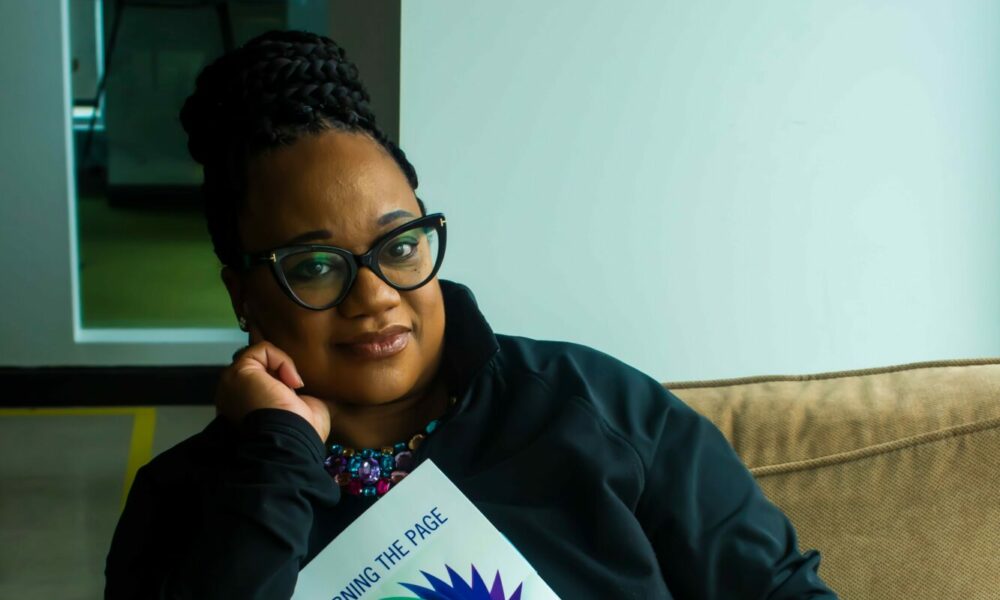

Today we’d like to introduce you to Rachel Slaughter. They and their team shared their story with us below:
Rachel Slaughter is an educator, author, and international speaker on global literacy issues.
As a child, Rachel was raised Catholic in a small town called Yeadon, Pa. which is in Delaware County, just outside of Philadelphia, PA. A student in Catholic school from grade school through college, Rachel was always excited about learning. It was in the 8th grade when Rachel realized she wanted to be a teacher. To prepare for a life of educating the youth, Rachel spent her young, formative years in the local library with her nose in a book.
After high school, Rachel had her eyes on a local Catholic college that advertised small classes and a small community vibe, similar to the schools Rachel was familiar with. In college, Rachel began to build her bright career in Education. Through endurance, passion, and advocacy, she earned several academic accolades that opened professional doors that led to her success as an educator, mentor, and scholar.
After marrying in 1991, Slaughter and her husband relocated to Pottsgrove, PA where Slaughter taught English at a public high school in Reading, PA. Eight years later, she and her husband returned to Delaware County, PA to raise their family, two beautiful daughters and a Siamese cat. Slaughter continued her work as an English teacher and began teaching college as well. In 2019, Dr. Slaughter earned a Doctoral degree in Cognitive Studies and Reading from Widener University where she presented her dissertation titled “Summer Reading Lists in Private Middle Schools: A Qualitative Content Analysis of Multicultural Fiction.”
Earning her terminal degree was the pinnacle of her graduate and undergraduate accomplishments. To note, Dr. Slaughter earned a B.A. in English/Communication and Secondary Education from Cabrini University, and a Master of Education in Secondary Education and Literature from Kutztown University. In the interim, Slaughter became a certified Reading Specialist via the Department of Education. Dr. Slaughter credits her success to the valuable lessons she learned as an undergraduate at Cabrini College.
While a student at Cabrini College, Slaughter received exceptional instruction under the guidance of Dr. Jerry Zurek. The Communications courses inspired her to become a journalist. When she graduated, she became a part-time local features reporter for two newspapers. This meant she was a teacher during the day and wrote articles in the evening for The Philadelphia Inquirer and The Philadelphia Tribune. Many of her articles were featured as cover stories, making Slaughter a celebrated young local reporter. During the height of her journalism career, two of Slaughter’s books were published.
“Roxie Mirage” was published in 1994. “Daddy, Read to Me” was published shortly after. Never willing to rest on her laurels, Slaughter decided to start an after-school program in her neighborhood. In 2008, Slaughter founded The Salt and Light Learning Institute. which provided tutoring and academic resources to at-risk families with children in grades Kindergarten through college. In 2018, Slaughter revamped the program, created a non-profit, and named the organization Literacy University.
In 2021, Rowman and Littlefield published her textbook and workbook titled “Turning the Page: The Ultimate Guide for Teachers to Multicultural Literature” (Rowman and Littlefield, 2021). The books include a peer-reviewed metric that Slaughter designed to rate the quality of multicultural literature and literacy, which is her area of expertise and the foundation of her international speeches. Most recently, Slaughter was invited to address readers in Dublin, Ireland, and Oxfordshire, England.
Not long after her invitation to Ireland, Slaughter began writing a syndicated column titled “The Reading Quilt.” The column provides a short review of a book or play that a teacher may use to spark conversations about culture and race, along with a learning activity that may help students understand human behavior. Using the acronym Q.U.I.L.T., she offers readers information about the Quality of writing, Universal theme, and Imaginative plot, as well as a mini-lesson plan, and Talking points that stem from the book’s premise.
With a wealth of experience and knowledge in the literacy arena, Dr. Slaughter has taken her expertise to the masses over the years by speaking to groups of school leaders, consultants, and fellow educators. Lastly, Dr. Slaughter continues to be highly sought out to teach and facilitate lessons on topics like “how to teach reading comprehension using multicultural literature” to Lead Teachers, Professors, Department Heads, and administrators. She remains committed to the vision of eradicating illiteracy in the future.
Recently Rachel was invited to speak at the 23rd European Conference on Literacy and the 7th Panhellenic Literacy Conference in Crete, Greece. Rachel’s presentation titled “Finding, mining, and teaching texts that shine a light on and encourage uncommon literacies and joy of BBIPOC while underscoring the five characteristics of effective structured literacy teaching and historical inquiry” will be featured June 24-June 26, 2024.
I’m sure it wasn’t obstacle-free, but would you say the journey has been fairly smooth so far?
As a child who went to all White Catholic schools from first grade through college. I am familiar with Predominantly White Institutions (PWIs). I remember being the Black girl in White schools who became the poster child for poverty and crime. These descriptors were the opposite of my true life. My guardians were older, well-established parents who had the means to raise their children and other children as well.
Unfortunately, my reality was ignored in schools. I was ignored in schools in the sense that few teachers ever took the time to get to know me. My teachers, nuns who were members of the Immaculate Heart of Mary (IHM) religious institution, relied on a cornucopia of biases that hindered my social, emotional, and academic development. These nuns convinced themselves that I was a poor Black girl raised by uncouth Barbarians. Through snide comments, innuendoes, and body language, the nuns revealed their racist and biased images of my culture that they probably learned as children.
Their mistreatment, secured in racism, set the stage for years of microaggressions that would become the platform for racial trauma. This treatment, which was killing me from the inside out, led me to my vocation: sharing the brilliance and power of multicultural literature (ML) to celebrate their multicultural backgrounds while boosting their self-esteem. I knew multicultural literature had the power to change lives because ML did this for me.
Through ML, I saw pieces of myself in African American protagonists who were bold and beautiful. I lived vicariously through these heroes and brought them with me as I fought microaggressions slung at me from White nuns, lay teachers, and students in predominantly White institutions (PWIs).
Thanks – so what else should our readers know about your work and what you’re currently focused on?
I have been a veteran educator for over three decades. Through classroom teaching, my efforts, and the resources that I provide through my 501c3 “Literacy University,” I motivate children to read and embrace the traits of literate and academic people.
How do I do this work? I make book connections. You know how you want to make connections with your students, but you’re not sure how? I start with a book. Before selecting the book, I begin with finding out the student’s passion. Once I become familiar with the reader and their passions, I select a book that includes a protagonist of color who shares the same passion. For example, I taught a girl in high school who was passionate about becoming an aviator. I gifted my student friend with the book “Flygirl” (Penguin Books, 2010) by Sherri L. Smith.
Another way to make a “book connection” with a student is to find a book that details a character experiencing the student’s social or emotional conflict. Several years ago, I spent time mentoring a young lady who was in turmoil with her mother. I gave her the book “Letter to My Daughter” (Random House, 2009) by Maya Angelou. This book provides the thoughts of a woman who knows her faults and shortcomings. I hoped to teach my student friend that mothers are people first. They experience highs, lows, and missteps. In other words, they are human and need compassion.
Making a book connection with a student is just one way to invite the student to dialogue with you about poignant and prevalent issues that plague our modern world. I am most proud of my vocation. My vocation is to help students make connections with multicultural literature. In doing so, I create classroom spaces, tutoring, or academic spaces where I can recognize the unique individuality of each young person I encounter. Students, especially students of color, are yearning to see protagonists of color who interact with White people in various circumstances. Through books, students have the opportunity to live vicariously. Connecting a student with a multicultural literature book can be a gesture that symbolizes a host of many different expressions: an olive branch, a bright smile, or a warm hug.
At Literacy University, I provide diagnostic tests and practice in reading comprehension, writing proficiency, and study skills which help students conquer their school and homework. I also offer Homeschool Services. We consult with homeschool parents to help them with organizing successful homeschool environments.
Any advice for finding a mentor or networking in general?
My advice for finding a mentor who is interested in and respects your mission is to network in places where you love to hang out. If you like the vibe of the environment, it is probably a place where your mentors are waiting for you. To make connections with people, learn to make small talk with someone who intrigues you. Humble yourself to learn something from the person. Mentors are valuable resources. Mentors have often already walked the path you’re on and can offer valuable insights based on their own experiences.
Learning from their successes and failures can help you avoid making the same mistakes and make better decisions. To find mentors who respected me and wished me well was not easy. I started by making connections on LinkedIn and asking those selected people to provide me with their stories of how they “made it” in their particular industry. Additionally, I humbled myself to ask for advice about subjects in which I was considered an expert. I am always open to learning new information.
Pricing:
- $99 to receive an introductory homeschool preparation virtual starter kit
- $50 for tutoring for an hour
- $99 for individualized learning modules tailored to fit your child’s tutoring needs
- $5500 and transportation expenses for 6 hours of training on how to select multicultural literature that “beats the book ban.”
- $10,000 for an hour of conference keynote lecture
Contact Info:
- Website: www.
drrachelslaughter.info - Instagram: https://www.
instagram.com/literacy_doc/ - Facebook: https://www.
facebook.com/DrRASLAUGHTER - Linkedin: https://www.
linkedin.com/in/dr-r-a- slaughter-819840b6/ - Youtube: https://www.youtube.
com/channel/UC-8LhVn- Mbo1ySiplM2HMdA
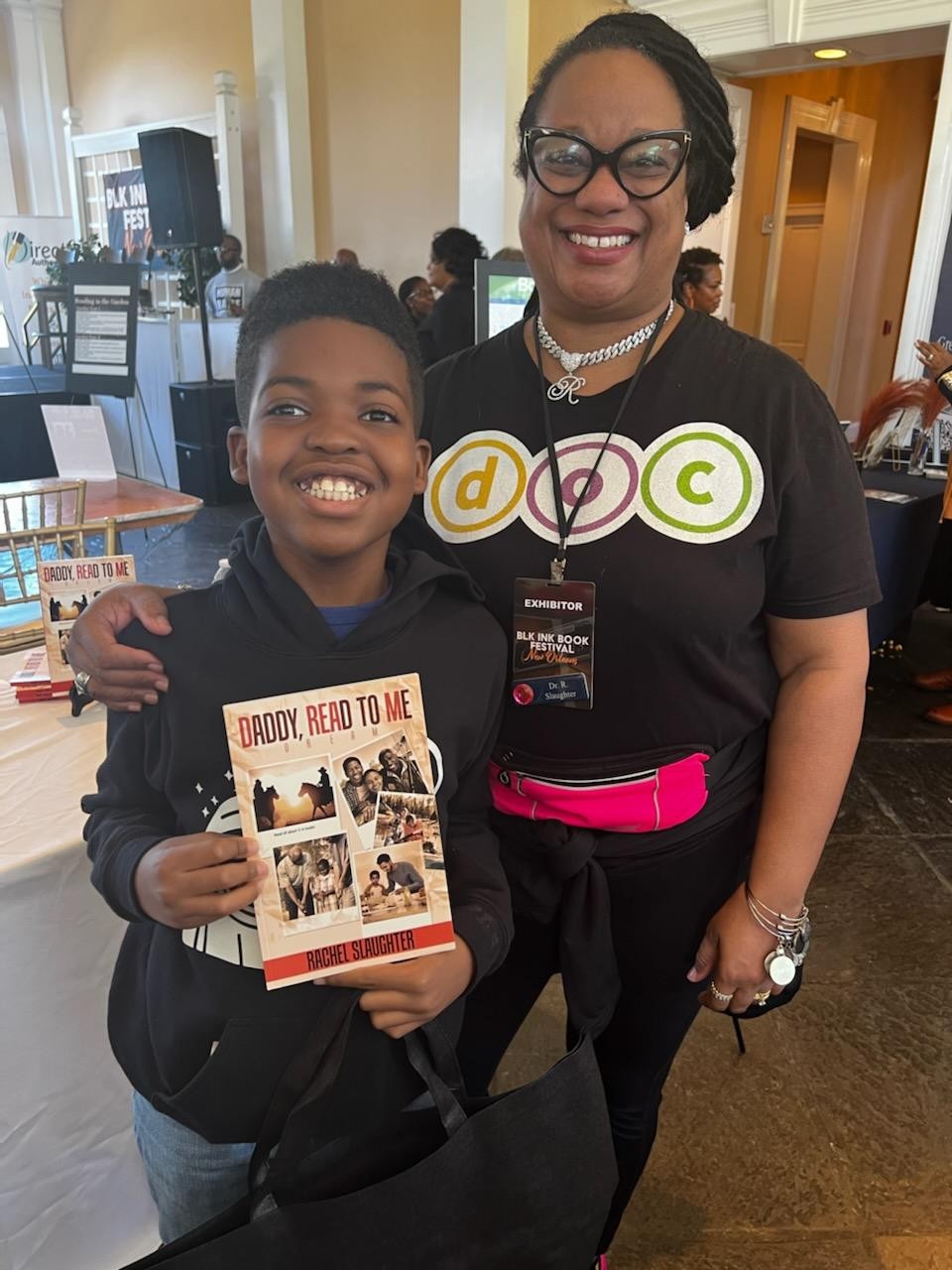
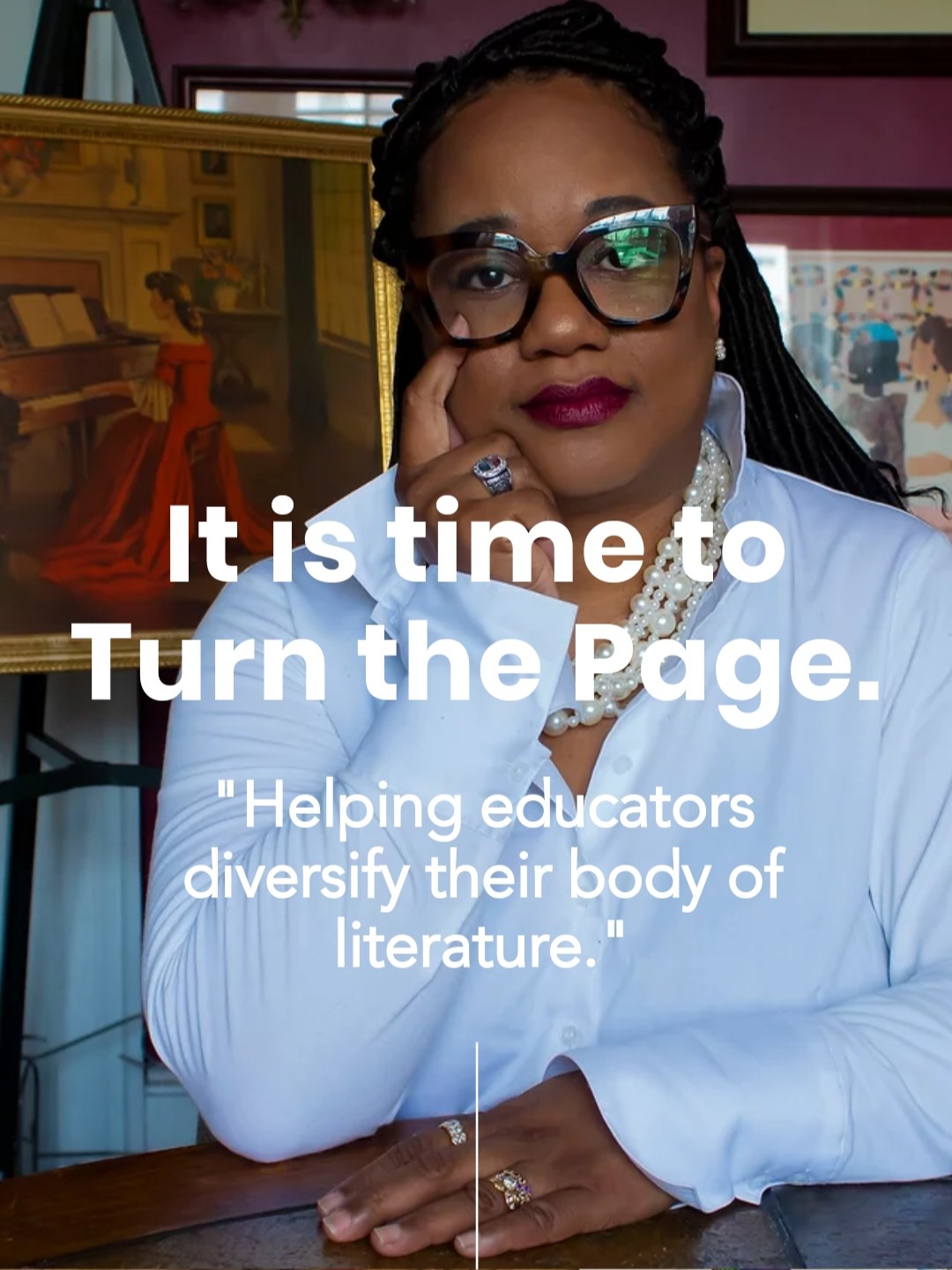
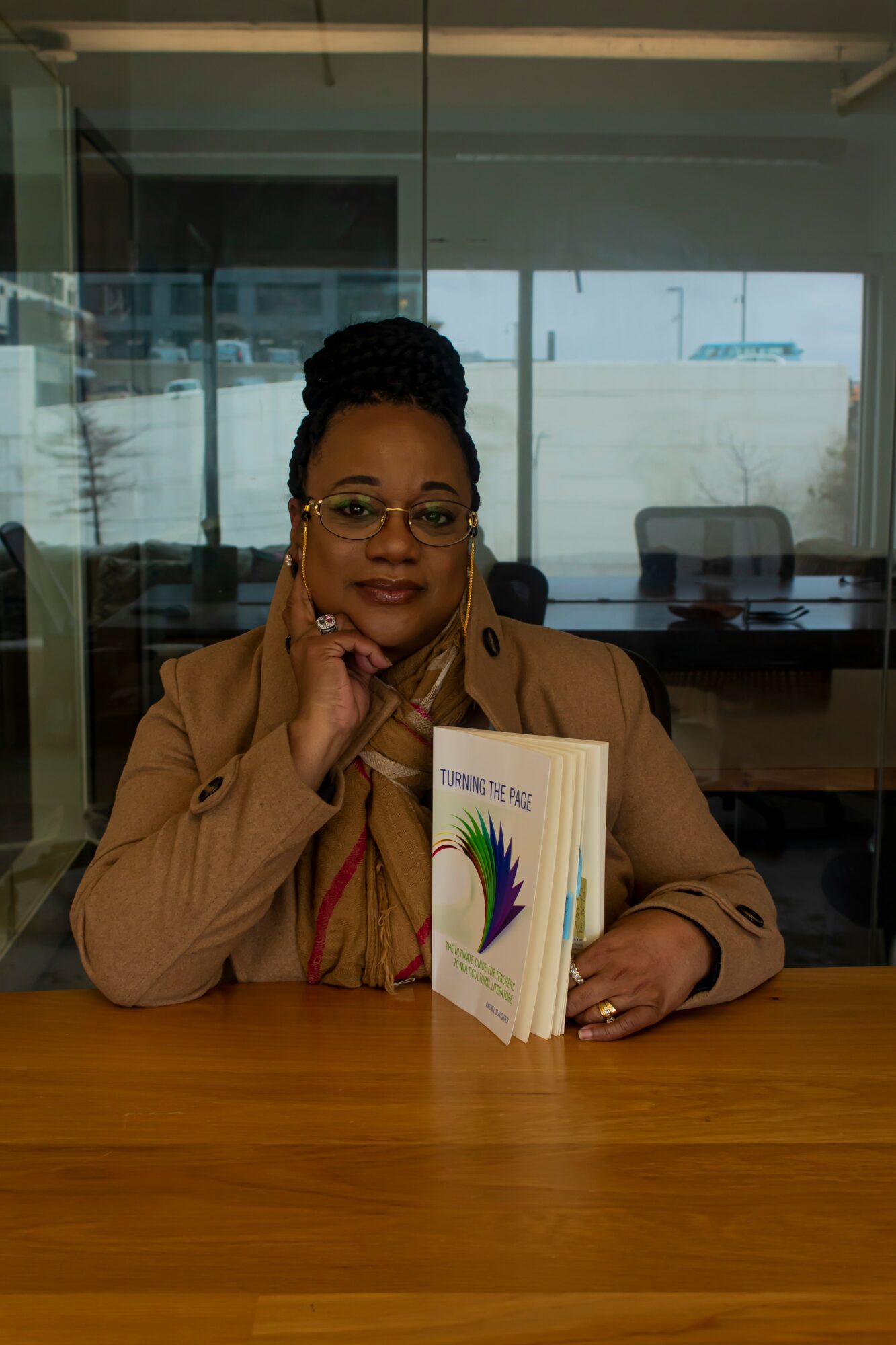
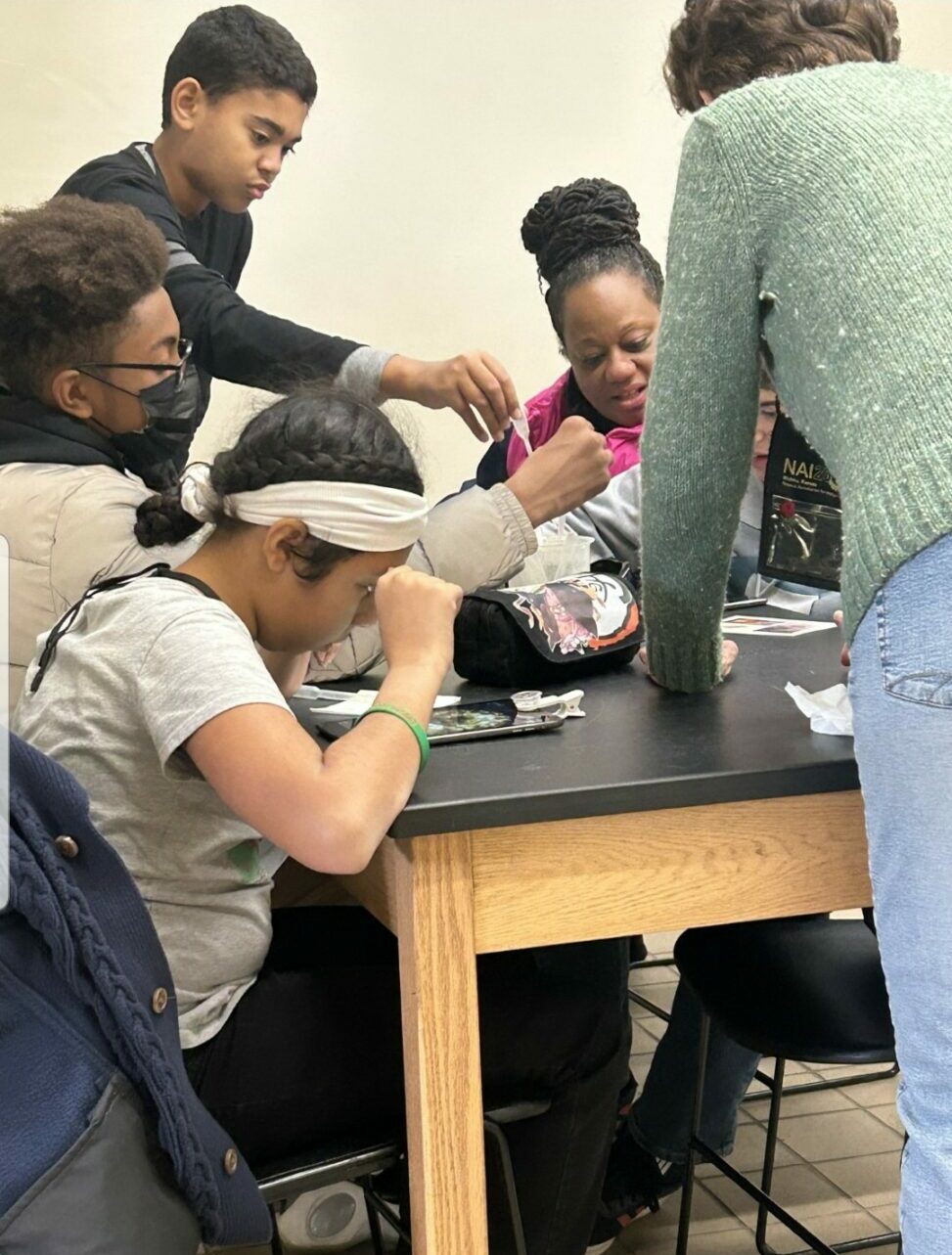
Image Credits
Chelsea Slaughter













